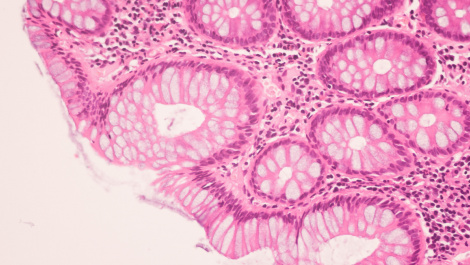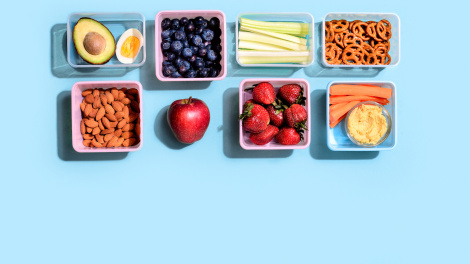Your metabolism affects your weight, digestion, energy, and mood. It includes all of the physical and chemical processes your cells use for energy to keep you alive and healthy.
All of this energy for metabolism comes from our food. The food we eat is broken down and the vitamins, minerals and other nutrients are absorbed. The calories are burned, fuelling metabolism (i.e. your cells), and excess is stored as fat. Generally speaking, the efficacy of this process is dependent on our thyroid gland which produces three hormones. These hormones act on almost every kind of cell in our body to increase cellular activity or metabolism. If there is too much or too little thyroid hormone, the metabolism of your entire body is impacted.
Note: It also slows down as we age.
So, how do you get a healthy metabolism if your thyroid is functioning properly? It’s based on two things: how much you eat and what you eat.
HOW MUCH TO EAT
When it comes to how much to eat for a healthy metabolism the guidelines are simple:
- Eat when you’re hungry.
- Stop when you’re full.
Sometimes these can be very difficult. Be mindful of your hunger and fullness cues and eat slower to help make the cues work for you.
WHAT TO EAT
There are a few foods that can help support your digestion and thyroid for optimal metabolism. These foods are particularly important because they are anti-inflammatory and provide your thyroid gland with essential nutrients.
Fruits and vegetables, obviously
Fruits and vegetables are full of health-promoting nutrients like vitamins, minerals and antioxidants. They help to nourish our bodies and make us feel full from their fibre content. Fibre helps your digestive system work better which is also key to a healthy metabolism.
Ideally, people over 50 should have 1 ½ - 2 cups of fruit and 2 - 2 ½ cups of vegetables each day.
Pack in the protein
Foods like fish, nuts and seeds, dairy, meat, eggs.
Why? Our bodies need a fair amount of energy to digest proteins, forcing our metabolism to speed up. It also keeps us fuller for longer so we avoid overeating.
Bonus: Fish contains protein and healthy fats that are great for your brain, protect against heart disease and help to lower inflammation. Fish also has the key essential mineral for the thyroid - iodine. Iodine is needed by the thyroid gland to create thyroid hormones.
Cuppa-tea? Cuppa-Joe?
Coffee, strong black tea, green tea, oolong tea. Between coffee and various teas, your metabolic rate may increase between 4% and 11% due to the combination of caffeine and catechins. Studies show that drinking coffee or tea boosts your body’s calorie burning activity and could get you to burn an extra 100 calories.
Careful though, too much tea or coffee could have adverse effects on your digestion, bowel activities and ability to sleep.
Just for luck
So, just because there are a lot of foods out there that have the potential to boost your metabolism here are some lesser known not yet proven entirely effective, as research is still ongoing… Spices, cacao, coconut oil, apple cider vinegar, seaweed. Generally speaking these all force your body to use its energy and fat stores – hence the metabolism boost.
LET'S RE-CAP
The best path to optimal metabolism follows how much you eat and what you eat. Remember to eat only when you’re hungry and stop when you’re full. For an added boost, try filling up with more fruits and vegetables, and eat a good amount of protein.







Comments